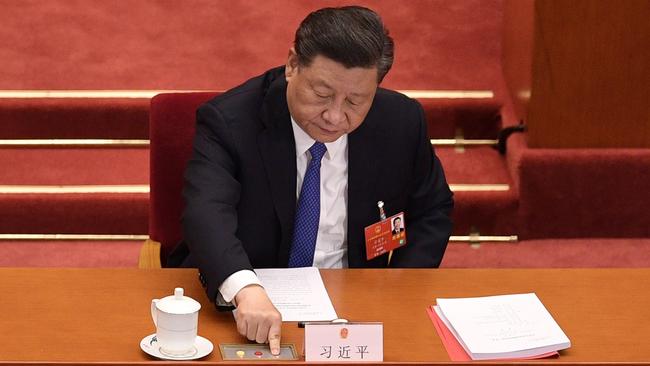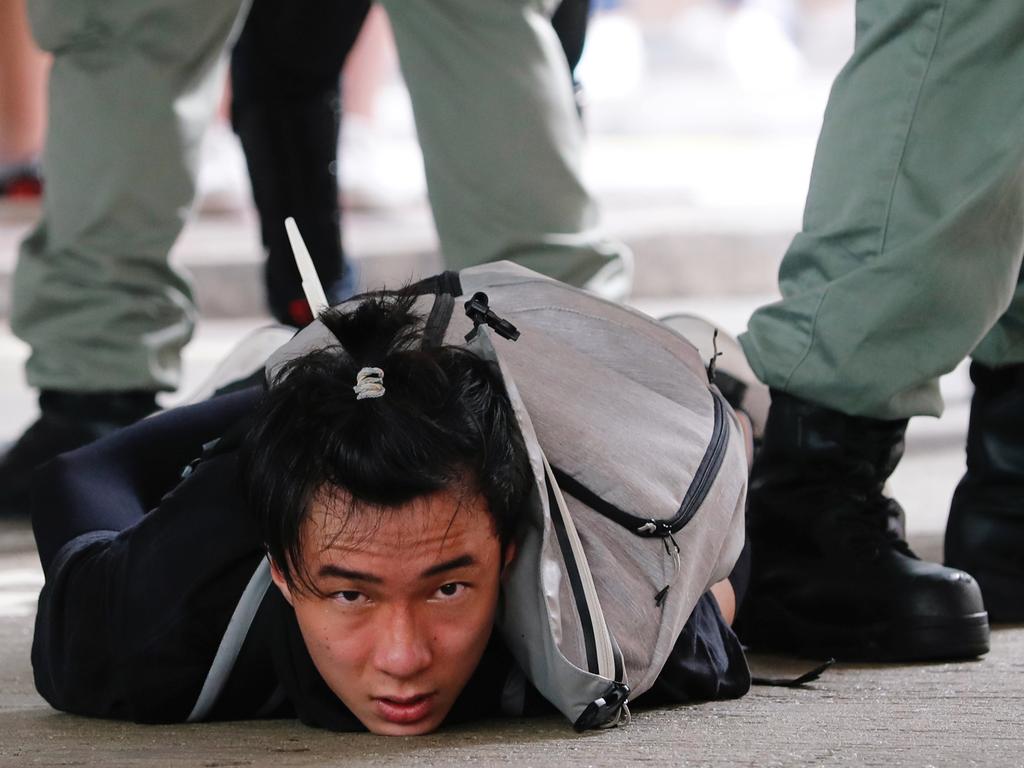Bleak future for even the most resilient of Hong Kong’s freedom lovers
Opitimism that Hong Kong’s culture of openness and rule of law will survive Xi Jinping’s new security law is doomed.

Following last Wednesday’s imposition of the breathtakingly draconian new National Security Law, some optimists were still able to suggest that the old saying might yet hold true: the mountains are very high, and the emperor is far away.
According to such thinking, maybe ways will be found to maintain Hong Kong’s culture of openness and of the rule of law in the weeks and months following the initial crackdown, with Chinese Communist Party general secretary and Chinese President Xi Jinping hopefully becoming distracted by other issues, and the local authorities little by little loosening the reins in the territory.
A Hong Kong University law professor, Albert Chen, said as much at the weekend — that people willing to accept the “minimal” new conditions of refraining from advocating, helping others to advocate, or actually themselves committing secession, subversion of the People’s Republic of China, terrorism, or collusion with foreigners, could “continue living and working safely in HK”.
But even a cursory glance at Xi’s career, his public speeches, his slogans, his core policies, and at those people he promotes and keeps close, reveals that such optimism — even in its humiliatingly minimal level as expressed by Chen — is doomed.
The penultimate clause of this new law, with 66 articles, states that not a word of it can be touched in Hong Kong itself, that it can only be “interpreted” by the Beijing-based standing committee of the National People’s Congress, which through the 71 years of the PRC has done almost invariably what the party’s general secretary tells it to do.
It has offended Xi’s zeal for China’s “rejuvenation” that such a “privileged” corner of his empire should harbour patent disloyalty. This emperor will, from now on, never be far away.
He will be in the face of everyone in Hong Kong, he will be in every smartphone, he will be hovering beside every dai pai dong food stall — and his agents will be ubiquitous on and offline.
The world has mostly cheered this crackdown by Beijing. Fifty three countries voted in what Global Times called a “landslide” for a statement at the UN Human Rights Council in Geneva supporting China’s harsh new HK controls, with just 27 — including Australia, New Zealand and Japan — against. As today in many such multilateral platforms, the US has withdrawn from involvement and did not vote. Those supporting the “landslide” included Australia’s closest neighbour Papua New Guinea, North Korea, Cuba, Venezuela and Somalia.
Xi is not especially focused on what the rest of the world thinks of him, anyway. But the Hong Kong government — detested by a large chunk of its 7.5 million people and perceived as virtually a quisling regime by many rule-of-law countries — is eager to “relaunch” the city’s image.
Within a total $42m international public relations budget for the coming year, it is hiring, for $9m, the London-based agency Consulum, whose best-known previous brief has been to boost the image of Saudi Arabia after the butchering of journalist Jamal Khashoggi in the Saudi consulate in Istanbul almost two years ago.
The local political impact has already been massive, with the best-known of the new protest-era democratic parties, Demosisto, being disbanded and its co-founder Nathan Law fleeing abroad, but with plans under way to establish a parliament-in-exile.
The September 6 legislative election may reverse last November’s local council landslide to the pro-democracy parties. All candidates are now required to declare their support for Beijing’s harsh new security regime, and some of Hong Kong’s most respected liberal elder statesmen and women — such as Martin Lee and Margaret Ng, and the Chinese language media world’s most famous publisher Jimmy Lai — face court and potential jail time before then. This may leave the field to pro-Xi candidates only.
And the thought-police have been swift to act. A growing number of books by authors such as 23-year-old protest leader Joshua Wong championing autonomy for HK have already been withdrawn from access in the city’s public libraries.
Rowan Callick, an industry fellow at Griffith University’s Asia Institute, is the author of Comrades & Capitalists: Hong Kong Since the Handover





Hong Kongers, who created the world’s most beautiful and vivacious modern city despite suffering within a single generation from Japanese, British and communist Chinese colonisers, are a resilient people.